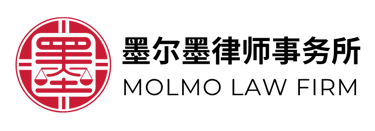Pakistan’s Recast Investment Landscape: Legal Realignment in the Shadow of Sovereignty
Mariam Sajjad
7/22/2025


If there is a lesson to be drawn from Pakistan’s recent engagement with foreign capital markets, it is that the State, while mindful of its constitutional and geopolitical constraints, is determined to project itself as both a repository of mineral wealth and a jurisdiction of commercial enforceability. Nowhere is this more evident than in the architecture of recent reforms, ranging from mineral sovereignty to SEZ-led industrialization, to the establishment of a Special Investment Facilitation Council (SIFC) under hybrid civil-military oversight.
A Policy Reoriented Toward Capital Certainty
The Pakistan Investment Policy 2023 serves as the juridical lodestar for this transformation. It enshrines several investor-protective provisions:
Equal treatment between foreign and domestic investors;
100% repatriation of profits, dividends, and capital;
Bilateral investment treaty (BIT) protections upheld in domestic law;
Fast-tracked dispute resolution mechanisms under a revamped Board of Investment.
Special Economic Zones (SEZs), notably Gwadar, Rashakai, and Dhabeji, now stand as enclaves of custom exemptions, tax holidays, and land access provisions. More crucially, the entry barriers around foreign ownership in sensitive sectors have been substantively liberalized.
The Mineral Sector: From Resource to Asset Class
The Reko Diq copper-gold project, with its projected $7 billion capex, stands as a monument to Pakistan’s mineral renaissance. With U.S. firms now engaged in trade talks for enhanced access, and with new regulatory frameworks mandating in-country mineral processing, the extractive sector is no longer peripheral but central to sovereign planning.
Pakistan’s Minerals Investment Facilitation Forum underscores this pivot by integrating environmental oversight, indigenous rights, and investment flexibility into a single legal platform.
SIFC and the Security; Sovereignty Compact
Perhaps the most unique development in Pakistan’s investment regime is the establishment of the Special Investment Facilitation Council (SIFC), a hybrid civil-military institution designed to expedite approvals, de-risk projects, and protect investor interests. This council brings together ministries, regulators, and security institutions under a single constitutional umbrella.
Far from being an anomaly, it is reflective of a jurisprudential doctrine wherein sovereignty and commerce are no longer in opposition but in co-governance.
Conclusion: The Moment and the Market
For the investors, Pakistan’s legal and institutional transformation offers both risk and reward. But in the words of Justice Cornelius, "true constitutionalism lies in the attempt, not perfection." In that spirit, Pakistan invites not charity, but commercial partnership under the canopy of law, structure, and sovereign intent.
